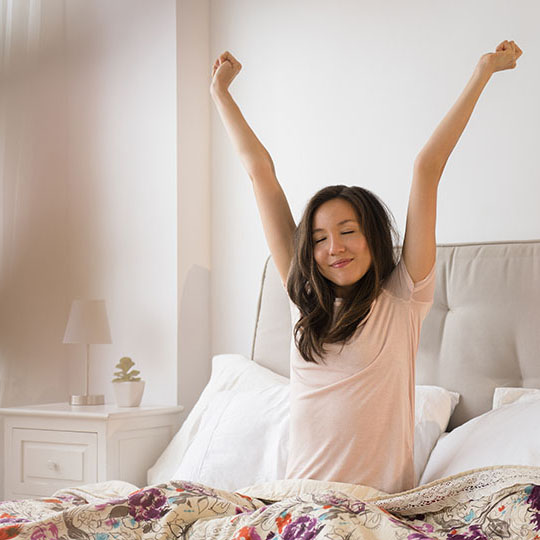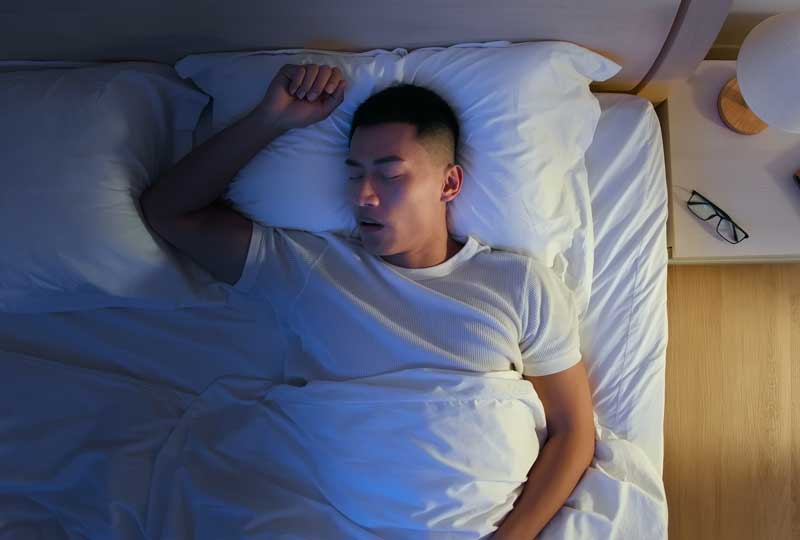A CPAP machine isn’t the only option for treating sleep apnea.
Almost 1 billion people worldwide have some form of sleep apnea, according to recent research published in The Lancet. Common symptoms of sleep apnea include snoring, gasping for air while sleeping, pauses in breathing while sleeping, trouble staying asleep, and daytime drowsiness and irritability.
An effective treatment for sleep apnea is the use of a continuous positive airway pressure (CPAP) machine. But surgical treatments are also potential options for patients who find that CPAP does not work well for them.
“You can imagine that there are some people who just don’t do well having to wear a mask and get air blown in their nose all night,” said David Kent, M.D., director of Sleep Surgery in the Department of Otolaryngology-Head and Neck Surgery at Vanderbilt. “The data suggest that it may be about half of people roughly that end up doing well with CPAP long term. And the people who don’t — they need some other form of treatment.”
Why treating sleep apnea is important
The stress sleep apnea places on the body can lead to cardiovascular, neurological and other health risks, and that’s why finding the right treatment for you is so crucial.
When we sleep, the muscles of the body relax, including the muscles of the upper airway. “For people with sleep apnea, that relaxation leads to airway collapse,” Kent said. The collapse can either be partial or complete and limit airflow.
When airflow is extensively limited, oxygen levels drop and carbon dioxide levels build, and the body reacts to the stress. “It’s kind of like being strangled,” he said. “So it activates the fight-or-flight response, or what’s called the sympathetic response. That raises heart rate and increases blood pressure. It’s like the body’s getting ready to fight. And that’s happening tens or hundreds of times a night, night after night.”
To get the airway open again, the brain must wake up and restore muscle tone and control. “Repeated neurologic arousals can be very disturbing to sleep and can lead people to not feel well-rested in the morning,” Kent explained.
CPAP isn’t for everyone
CPAP is a treatment that’s been around since the early 1980s. It’s an extremely effective therapy for patients who can sleep comfortably with it. Others sometimes struggle for months or years trying to get comfortable with different mask and pressure settings, or they are told they just need to keep trying. “I don’t think that’s fair to patients,” he explained. “It just doesn’t agree with some people’s bodies, and those people need something else.”
Surgical options
There are a variety of treatments for sleep apnea, including surgical options. The implantable Inspire device, for example, monitors your breathing while you sleep and increases the tone of your tongue muscle, moving it forward to keep it from blocking your airway.
“The data that we have suggest that it can be a very effective therapy for people who have the right anatomy and sleep apnea severity,” Kent explained. “Not everybody has a pattern of throat collapse that will be appropriate for Inspire, but for those who do, it can be a very effective and well-tolerated therapy.”
The Inspire implant goes just underneath the skin of the chest wall, and a small electrode goes underneath the jawline, as well. Patients then have an external remote to activate Inspire before falling asleep.
Inspire is just one alternative to CPAP. “We offer the whole gamut of medical and surgical options for sleep apnea at Vanderbilt,” Kent said. “Sometimes we just need to find something else that will work for a given person’s anatomy and lifestyle.”

The Vanderbilt Sleep Surgery program treats sleep apnea and snoring — both of which can cause unhealthy disruptions in your sleep pattern. Vanderbilt’s surgical team successfully helps patients back to a peaceful night’s sleep.

